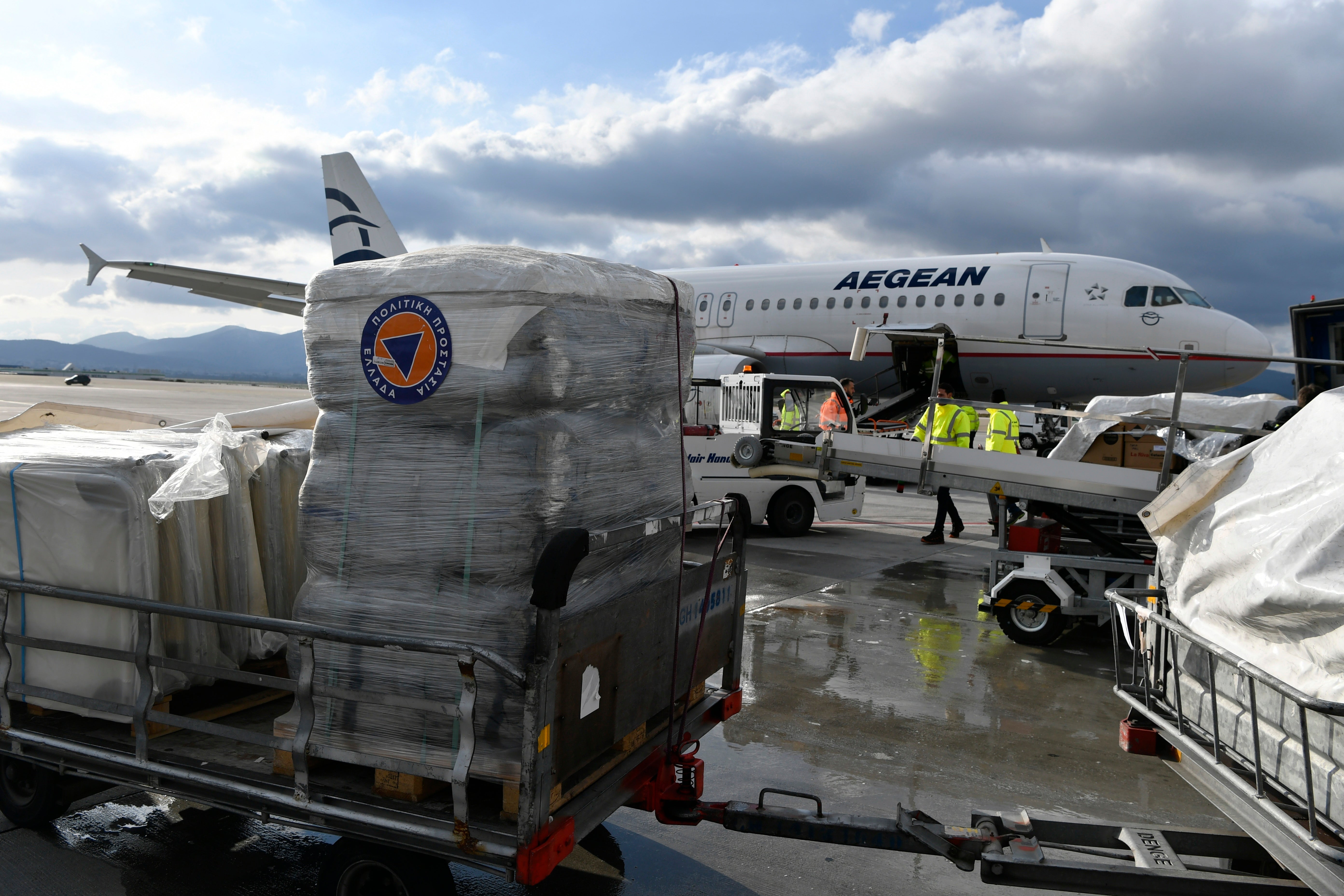Earthquake diplomacy: Greek foreign minister visits Turkey
Greece's foreign minister is visiting the earthquake-stricken areas of Turkey, accompanied by his Turkish counterpart

Your support helps us to tell the story
From reproductive rights to climate change to Big Tech, The Independent is on the ground when the story is developing. Whether it's investigating the financials of Elon Musk's pro-Trump PAC or producing our latest documentary, 'The A Word', which shines a light on the American women fighting for reproductive rights, we know how important it is to parse out the facts from the messaging.
At such a critical moment in US history, we need reporters on the ground. Your donation allows us to keep sending journalists to speak to both sides of the story.
The Independent is trusted by Americans across the entire political spectrum. And unlike many other quality news outlets, we choose not to lock Americans out of our reporting and analysis with paywalls. We believe quality journalism should be available to everyone, paid for by those who can afford it.
Your support makes all the difference.Greek foreign minister Nikos Dendias visited the earthquake-stricken areas of Turkey Sunday, accompanied by his Turkish counterpart, Mevlut Cavusoglu.
The visit was part of a new round of so-called “earthquake diplomacy” between the two uneasy allies, whose relations have often been frosty, if not downright hostile. Something similar happened in 1999, three years after the two countries almost went to war over two uninhabited islets in the Aegean Sea.
In August 1999, a 7.6 magnitude tremor had struck Turkey, resulting in about 18,000 dead; the following month, a 6.0-magnitude earthquake struck the Greek, capital, Athens, killing 143 people. In both cases, the two countries sent rescuers to assist in each other's efforts. The warming of bilateral relations had been widely covered in the international media.
Cavusoglu recalled a letter that he, as a private citizen, had sent to TIME magazine at the time.
“Back then, I said that we should not wait for another earthquake to improve our relations. I repeat this now, as Turkey's foreign minister. We must make efforts to improve our relations,” Cavusoglu said.
“I want to totally sign on on to what Mevlut said: that we should not wait for natural disasters to improve our relations,” Dendias said later.
The two countries are at odds over research for natural resources in the Aegean and the Eastern Mediterranean. Turkey has also accused Greece of militarizing some Aegean islands, in violation of international treaties, a charge Greece has strongly denied. Turkish President Recep Tayyip Erdogan has often threatened Greece that Tukish troops will come "suddenly one night,” and has mentioned that Turkey's new Tayfun missiles can reach Athens.
Such rhetoric has, at least for the moment, been put aside. Erdogan has spoken on the phone with Greece's President Katerina Sakellaropoulou and Prime Minister Kyriakos Mitsotakis, with whom he had had declared he would not speak ever again. The two Greek officials called Erdogan to express their condolences for the earthquake's victims and assure him of Greek support.
Publicly, and on social media, Greek people have expressed their support for Turkey, except for some on the far nationalist fringe. Greek unions have taken the lead in collecting aid for the displaced. At all sports events held on Saturday, a minute of silence was observed for the victims.
Cavusoglu and Dendias visited the Operations Centre in Antakya, where they were briefed on the latest developments concerning the evacuation and rescue effort, as well as on the humanitarian needs that have arisen. They also saw the extent of the devastation from the air, in a helicopter trip.
Dendias and Cavusoglu also visited the camp where Greek and other international units, units are based. Rescuers from EU countries have pulled a total of 205 survivors from the ruins, Dendias said in a joint appearance with Cavusoglu.
“The Greek effort will not stop here.,” Dendias said. “Greece will do everything to support Turkey, either bilaterally or as a member of the European Union.”
Cavusoglu especially thanked the Greek rescuers for their “superhuman efforts, round the clock, for the past week.”
“We noted that all Greeks, and not just the rescuers, were elated after each rescue...Good neighborly relations show in those difficult days," he said.